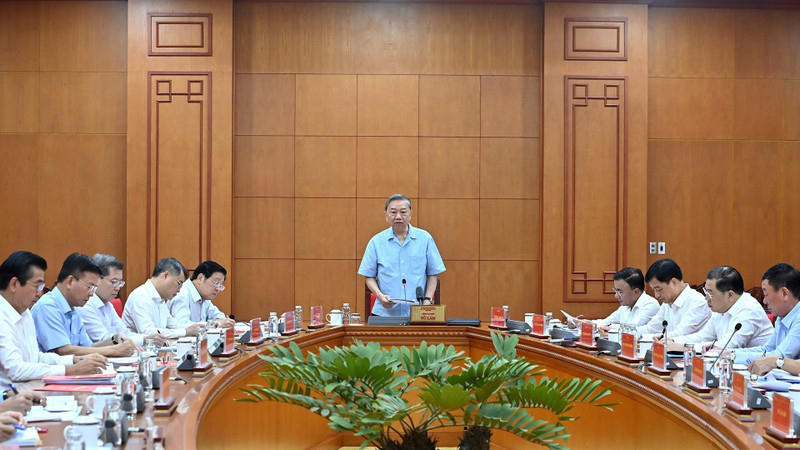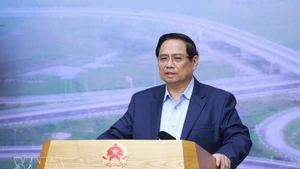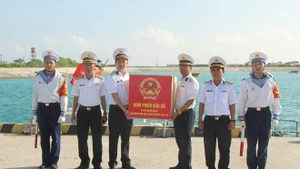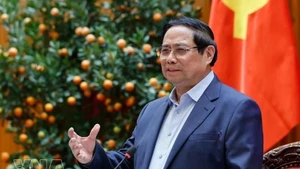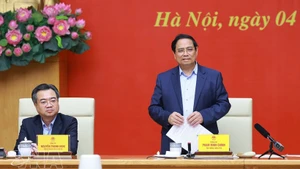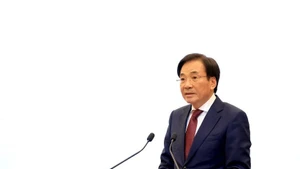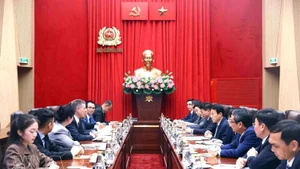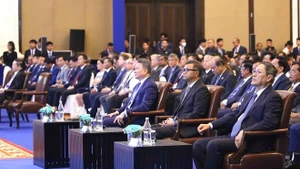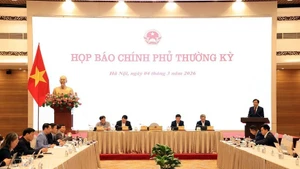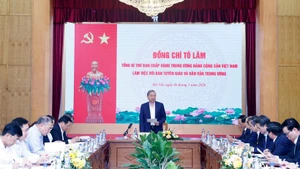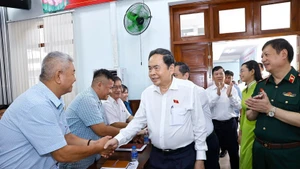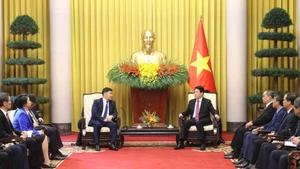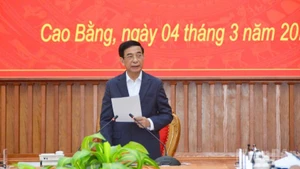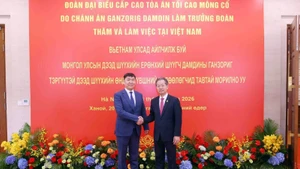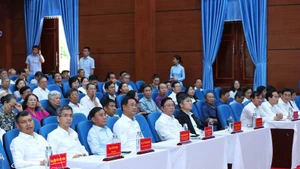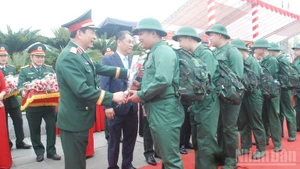Party General Secretary To Lam, who is head of the steering committee, chaired a meeting of the standing members on September 29 to discuss the handling of cases on corruption, wastefulness, and misconduct since the committee’s 28th session on July 7, and address long-stagnant projects that are likely to be wasteful.
The steering committee’s standing members requested that all-level Party committees and organisations, and competent authorities focus on directing inspections, investigations, and the thorough settlement of serious and complex cases that attract public attention. The goal is to complete the investigation, prosecution, and trial of 22 cases, and finalise the verification and handling of six others by the end of 2025 and before the 14th National Party Congress in early 2026.
In particular, emphasis must be placed on investigating and thoroughly handling cases involving collusion between corrupt officials and businesses for personal gain, and inspecting mineral management, licensing, and exploitation nationwide to promptly rectify violations, strengthen management, and enhance the efficient use of these vital resources.
It is necessary to handle delayed projects that pose the risk of wastefulness. In particular, obstacles must be removed for the 11 projects assigned to the Government’s Party Committee for settlement so that they are put into use in 2025.
Urgent finalisation of inspections is required for 563 projects facing obstacles to enable timely measures to be taken. Efforts must also be accelerated to deal with surplus offices, houses, and land, and the implementation of the two-tier local administration model, to prevent infrastructure deterioration, encroachment, or wastefulness.
The meeting emphasised the need to strengthen the control of power and the fight against corruption, wastefulness, and negative phenomena in connection with building a clean and people-serving two-tier local administration system, especially at the grassroots level.
It called for enhanced inspection and monitoring of anti-corruption, anti-wastefulness, and anti-misconduct efforts in the operation of grassroots authorities; proactive and timely grasping of public opinion and citizens’ feedback regarding signs of corruption, wastefulness, or misconduct at the local level; and strict and transparent handling of corrupt, wasteful, or negative practices in authorities' handling of affairs related to people and businesses.
Participants also underlined the need to boost publicity, transparency, and accountability in public services; promote the application of science, technology, and digital transformation; and foster integrity education among officials, Party members, and the public. Supervision should concentrate on pressing issues of public concern such as land, natural resources, minerals, energy, public finance, public assets, food safety, and key projects.
They also requested a comprehensive review of anti-corruption, anti-wastefulness, and anti-misconduct efforts during the Party’s 13th term, along with a summary of investigations, prosecutions, and trials of corruption, wastefulness, and misconduct cases.
Since the committee's 28th session, judicial authorities across the country have initiated probes into 443 cases involving 1,488 suspects. They have prosecuted 470 cases with 1,296 suspects and conducted first-instance trials for 512 cases with 1,266 defendants, all related to economic and position-related corruption charges.
During the period, Party committees and their inspection boards at all levels have disciplined 13 Party organisations and 190 Party members. The Party Central Committee, the Politburo, the Secretariat, and the Party Central Committee’s Inspection Commission have issued disciplinary measures against eight senior officials under the management of the Politburo and the Secretariat, bringing the total number of centrally managed officials disciplined since the beginning of 2025 to 19.
The Government and the Prime Minister have focused on directing the review, classification, and handling of 2,991 delayed or long-stagnant projects that pose risks of losses and wastefulness.
